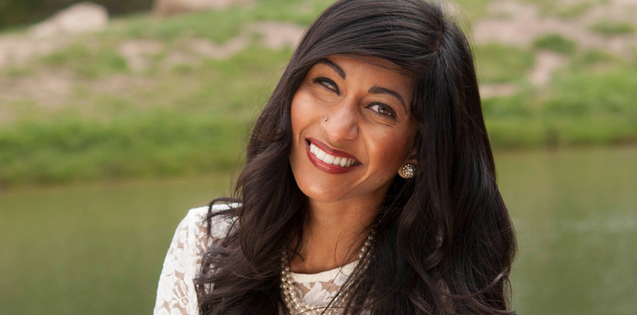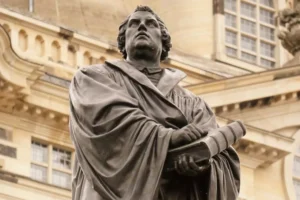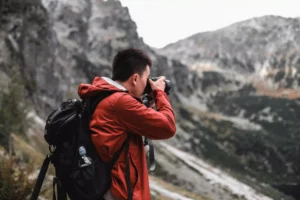Rifqa Bary grew up in a devout Muslim home and secretly converted to Christianity at the age of 12. When her parents discovered her secret four years later, she ran away from her Ohio home in fear of an honor killing. Her story of risking her life for her faith made national headlines in 2009.
Today she is a thriving 22-year-old college student living in an undisclosed location, studying philosophy and considering a legal career with the hope of giving a voice to the oppressed. She recounts the chain of events that thrust her into the national spotlight in her New York Times best-selling book, Hiding in the Light. And in an interview with Boundless, she recently shared some of the story behind her book.
1. You grew up in a devout Muslim home and followed all the tenets of Islam. Based on that experience, what was your view of Christianity?
My view of Christianity was that it was mainly composed of a group of people who sinned profusely and used the cross as an excuse to live however they wanted. For example, when my father started to send me to a private Islamic tutor, one of the arguments she made against Christianity is if Jesus takes away your sins, what would stop you from sinning? At the time, I did not understand what it meant to have a relationship with God. I saw Christianity as a part of the culture around me. It was a label and I did not see it differently than any other religion. However, all of this changed when I befriended a girl named Angela in middle school. It was here where her gentleness and pursuit led me to go to church with her. My life took a drastic turn as a result of her boldness in preaching the Gospel to me.
2. You converted to Christianity when you were twelve. What made faith in the Christian God so appealing to you as a Muslim girl?
Even at such a young age, I was depressed and suicidal. I remember thinking at one point during that year, If this is all that life has to offer, I don’t want it. I felt I was suffocating from the abuse and oppression I was constantly fighting in my home. Living in a Muslim home, I was taught I had no value or worth outside of being owned by someone. Therefore, when Angela [in seventh grade] presented the idea that the Creator of the universe made me with a purpose and loved me unconditionally, it felt scandalous. For the first time in my life, I was offered hope and freedom. Not only was this offered to me in words through the lips of a friend in middle school, I watched it lived out every day as Angela stood out from the rest of our middle school. Her friendship and commitment to Christ was one of the major factors that led me to a church where my life took a drastic turn.
3. When you were 16, your parents and then the local mosque learned of your conversion. You fled to safety in another state, and your story made international headlines. In the midst of that turmoil, did you ever doubt your decision or wonder if you were doing the right thing?
There were often times where I was angry, depressed and doubted God’s goodness. However, despite my lowest moments, God branded my heart during the years that I lived with my family. He did so in such a way where what I was giving up for Christ could not be compared to what I was experiencing in fellowshipping with Him. So yes — I doubted. However, in the midst of my doubting, God was faithful to consistently remind me of who He is. His unwavering love carried me through the trials, whether youth detention, cancer or the sorrow of losing my family.
4. You’ve experienced much suffering in your young life: losing vision in your right eye, being molested as a young child and the shame it would bring your family, and then all the turmoil after your decision to convert to Christianity, including a rare form of uterine cancer. How has that pain shaped you and prepared you for what God has called you to do?
Suffering has been one of the key factors that has shaped the core of who I am. It has pushed me to the place of prayer and has allowed me to see my own brokenness in such a way that I have no one else to lean on but Christ. A beautiful aftereffect has been watching how God is using the sorrow of my suffering and healing other people with it.
Along with seeing that, suffering has led me to the place where nothing else in this world can satisfy me but Christ alone. It has taught me that my joy is not dependent on my circumstances; the harshest of fires cannot overwhelm Christ’s sufficiency.
5. You wrote your book, in part, because you want to draw attention to believers all around the world who are paying a high price for declaring Jesus Christ as Lord. Most of us in America will never face that kind of persecution. What can we do to support and enter into the suffering of our brothers and sisters around the world who face that persecution daily?
There are various ministries available that partner with our persecuted brothers and sisters around the world. One main way we can support and enter into the suffering of our fellow family in Christ is to choose to be informed about their stories. When we have a real face and name, their suffering becomes much more personal. Another avenue that is connected to being informed is through prayer. I’ve quite often heard the phrase, “You fall in love with what you pray for.” Through my own experience, I have found this to be true and would highly recommend prayer as an avenue in knitting ourselves with those who are suffering for His name’s sake.
You can follow Rifqa on Twitter @RifqaBary or check out her website at RifqaBary.org.











